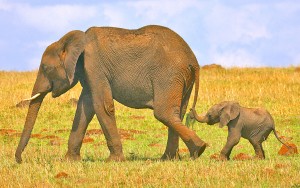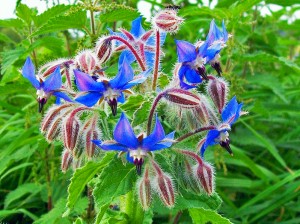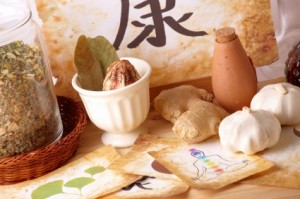Do humans have instincts?
In a previous post, “Animal Instinct to Medicinal Plants“, we discussed the ways in which animals use medicinal plants to heal themselves. We speculated that natural selection favored the animals who used medicinal plants. Through this statement we implied that the use of medicinal plants to self-medicate is instinctual. In this blog post, we are going to introduce the concept of instincts and how they came to be. We will then investigate whether or not humans have instincts, too.
Instincts Explained
Animals in the wild seem to instinctively know which plants are edible and which plants are inedible or poisonous. The term “instinct” refers to the power of life to do without present conscious effort many things necessary to the well-being of the individual. But how do animals obtain these instincts? Biologists have theorized that instincts are permanent attributes developed from race habits. For a habit to form, a conscious repetition of a certain activity impresses that form of action on the individual so that it becomes a habit and may be repeated with minimal conscious direction thereafter. For a race habit to form, these individual habits persisted in succeeding generations and, centuries later, became permanent attributes. Race habits regarding diet were learned from experience and observation. For example, antelope always nibble at a plant before feeding on it to determine if it is edible or not. Poisonous plants are usually bitter, so if an antelope nibbles on a poisonous plant it will taste the bitterness and avoid that plant as well as others that resemble it. Race habits are also learned through observing other members of that species, especially older members. In observation cases, individuals can learn from their elders, rather than learn from experience, by following their lead.

Do humans have instincts?
If humans are animals too, then why is it that we do not have the natural ability to distinguish edible plants from poisonous plants? The reason is because humans do not live like they did centuries ago. In prehistoric times, humans lived among animals in nature. They did not have access to the knowledge and technology that we do today. Therefore, they had to rely on their instincts for survival. For example, fear is an instinctual emotional response to a dangerous situation that may cause us harm. For primitive humans trying to survive, fear was a positive function that encouraged them to be cautious in dangerous situations. Today, we do not pay much attention to our fears and often try to conquer them. The advances that we have made as humans provide us with the ability to no longer depend on fear for individual safety. Over the years, humans have come to rely less and less on their natural instincts because we do not necessarily need instincts in our world. Therefore, we are not attune to our instincts, causing them to be weak and somewhat dormant. However, it is possible to foster our natural human instincts so that we can get in touch with our so called “wild side” and connect with our surroundings.
The Instinct to Heal
Believe it or not, humans naturally have instincts to heal themselves. We know that some animals, particularly dogs, have the instinct to lick wounds in an effort to heal them. It turns out humans have this instinct too. However, we tend to avoid putting nonfood things in our mouths in fear of ingesting germs (our instinct to avoid disease). In a previous blog entry, Animal Instinct to Medicinal Plants, it was mentioned how a pregnant elephant traveled much out of her way and would not feed until she came upon a specific tree, one of the Boraginaceae family. When she came upon the tree, which was not usually a part of her diet, she devoured it almost entirely. Four days later she gave birth to a healthy calf and upon further investigation it has been found that the leaves and bark of this specific tree induce uterine contractions. Like elephants, Kenyan women have been utilizing the properties of this tree for many years by making tea from the leaves and bark to induce labor. Before scientists made this discovery, how did Kenyan women know that these trees could induce labor? Were they using their instinctual knowledge?

Borage, an herb that is a member of the Boraginaceae family, is commonly used to treat a variety of gastrointestinal, respiratory, cardiovascular and urinary disorders.
Evolution of Human Instincts
Primitive humans were hunters and gatherers. As they collected food they began to discover that some foods had the ability to relieve pain and illness, while others could cause death. Enlightened by their discoveries, they made a conscious effort to repeat the activity of collecting foods that relieved pain and illness. They also made a conscious effort to avoid foods that could cause sickness and death. These conscious efforts became individual habits and over time became race habits. Therefore, given what we know about primitive humans and their methods of collecting food, we can assume that humans have instincts when it comes to diet much like antelope and elephants. However, like mentioned before, these instincts lay dormant in many of us because they are not utilized.
In Traditional Chinese Medicine (TCM), we use herbal medicine along with various mind body practices (like acupuncture and tai chi) to promote health and overall wellbeing. TCM is one of the oldest healing systems in existence and has been in continuous practice for thousands of years. It aims to teach the individual how to live a life of balance, wellness, and harmony by empowering said individual with a way to unite mind, body, and spirit. When mind, body, and spirit are united we are able to reach vital parts of ourselves, our true potential. We are able to tap into powerful energy reserves in areas where they are most needed and maintain a level of clarity and awareness. The practice of TCM gives us the ability to clear our minds and become attune to our instincts. Perhaps this is why TCM has been so successful over the years and continues to be practiced today.

Much like the Kenyan women making tea to induce labor, TCM practitioners seem to know the risks and benefits of various herbs. To many it is a learned practice, but for those who have descended from long lines of TCM practitioners it is somewhat instinctual. TCM dates back to around 2200 BC. The discovery of fire occurred during this period. Aside from the new found ability to cook food, it was also found that fire could be used to heat up stones that could later be used for warmth. While pressing hot stones against their bodies, they noticed that pressure in certain areas of the body helped to alleviate certain illnesses. It was also found that the use of bones as needles to prick themselves in particular spots could relieve pain in other areas of the body. This began the early practices of what we now refer to as reflexology and acupuncture. Other aspects of TCM were also discovered at this time. Herbs and moxibustion began to be used to cure disease. As experience with these practices progressed, specialists in these techniques began to arise. These specialists were called shamans and can be considered the first TCM practitioners.
Today, we can utilize the methods of TCM to cure and prevent many ailments, as well as promote overall wellness. The fact that TCM unites our mind, body, and spirit is what proves to be most beneficial. When mind, body, and spirit unite we essentially become “whole”. Through this concept we can use TCM to reactivate our instincts. Stay tuned for our next blog post, which explains how we can reactivate our instincts and access them to help us cope with daily stressors.